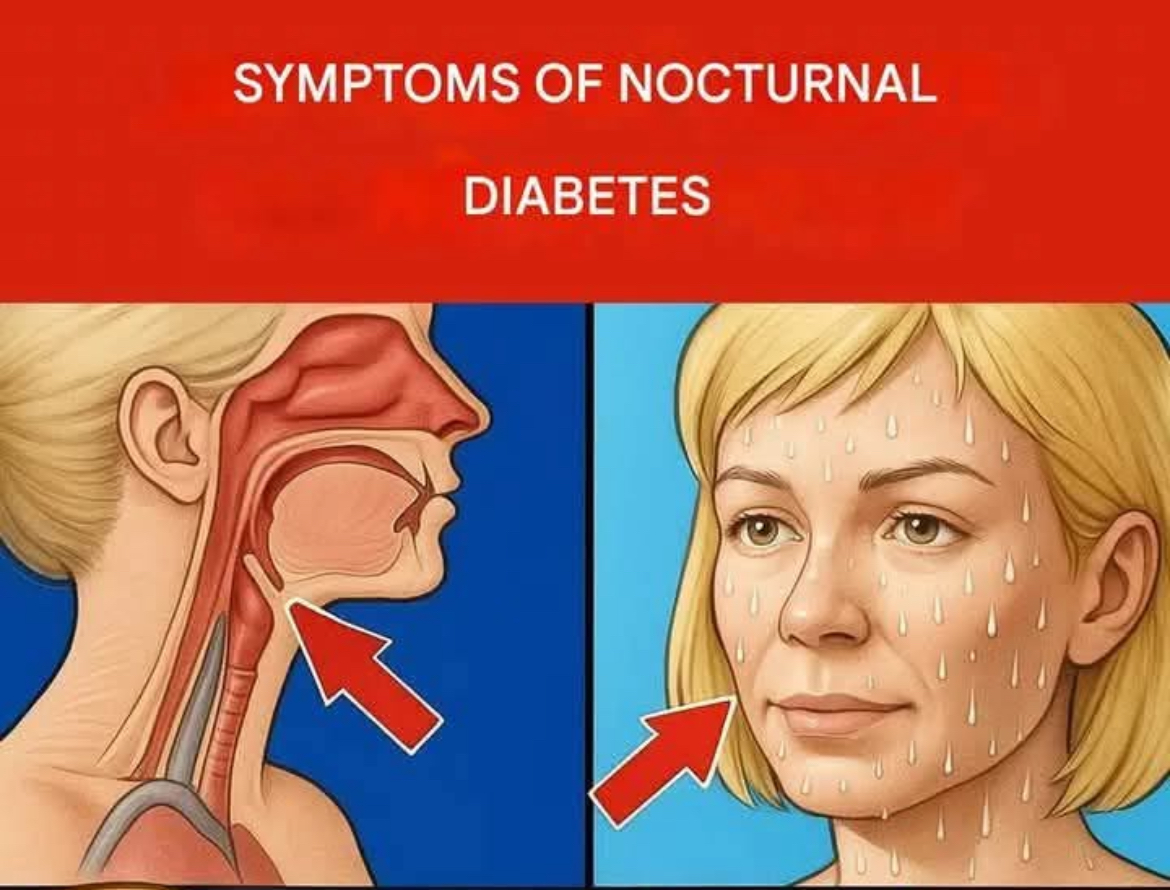Do you often wake up at night for no apparent reason? Are you extremely thirsty or need to go to the bathroom several times during the night? What if your body was trying to send you a subtle but important warning signal? Some nighttime symptoms can be the first signs of a blood sugar imbalance… Curious to know if your sleep says more than you think? Here’s what to pay attention to!
Understanding Diabetes Symptoms at Night
Diabetes, often called a “silent thief,” can develop slowly, sending out subtle warnings, especially at night. Even if everything seems calm on the outside, your body struggles to balance blood sugar levels.
Common nighttime symptoms include:
Nocturnal polyuria: This frequent need to urinate at night, similar to a leaky faucet, may indicate that there is too much sugar in the blood that the kidneys are trying to eliminate.
Excessive thirst: Drinking a glass of water before bed is normal, but repeatedly waking up with a dry throat may indicate high blood sugar.
Night sweats: Sweating profusely for no apparent reason may be linked to hypoglycemia (a sudden drop in blood sugar).
Night hunger: A sudden, ravenous appetite in the middle of the night may be a sign of an imbalance in blood sugar levels.
Insomnia and frequent awakenings: A brain deprived of an adequate balance of blood sugar will have a harder time falling asleep in a deep, restful sleep.
Why does diabetes disturb your nights so much?
Imagine your body as an orchestra: to play a beautiful symphony, each instrument must be perfectly tuned. In the case of diabetes, it is as if some musicians were playing out of tune. The result: repeated nighttime awakenings that interrupt your natural rhythm.
Blood sugar levels naturally fluctuate throughout the night. In a diabetic, these variations are more extreme, creating a real emotional roller coaster for the body: a peak of hyperglycemia at the beginning of the night, hypoglycemia in the early morning…
How to react to these nighttime symptoms?
